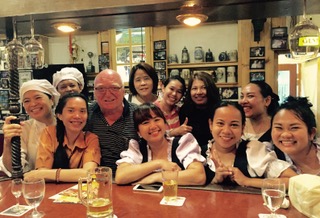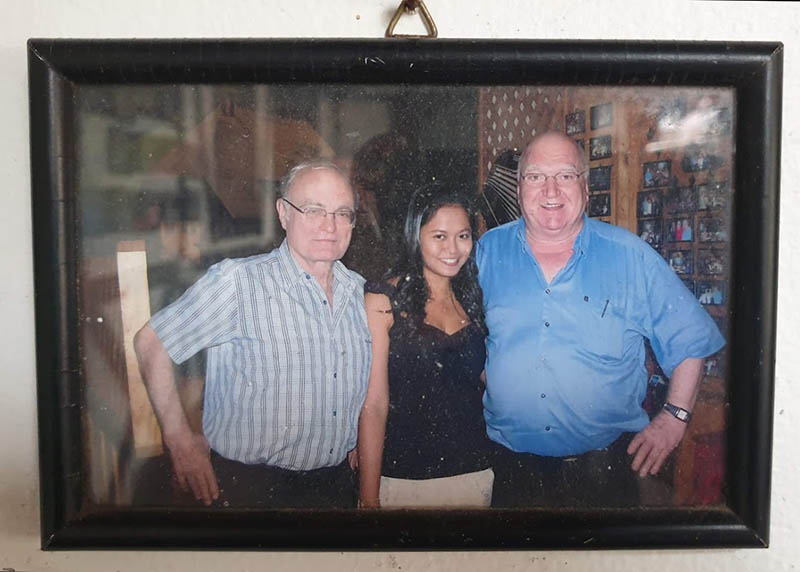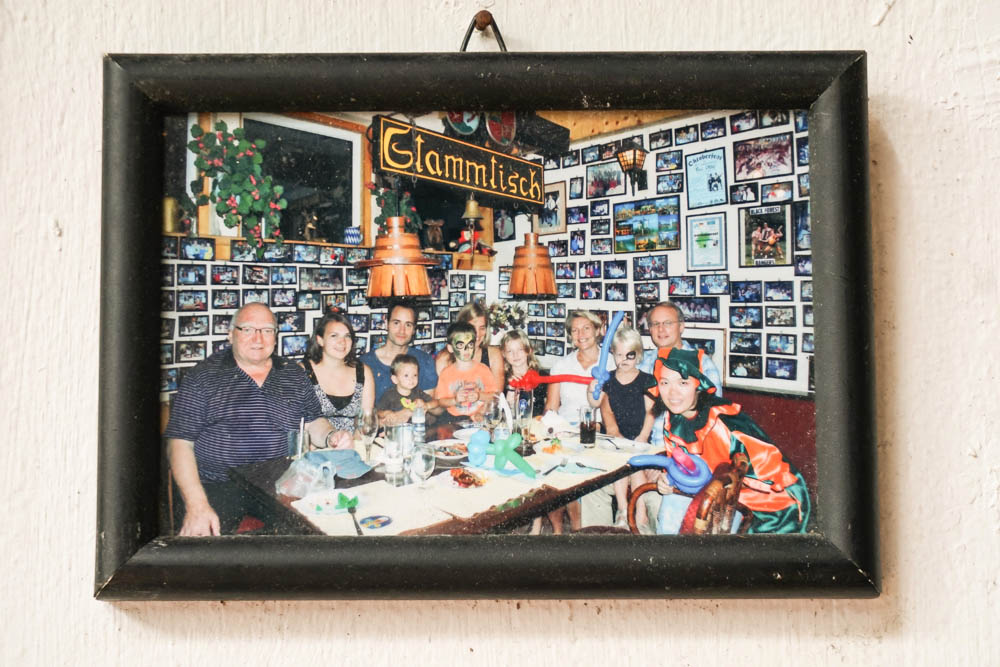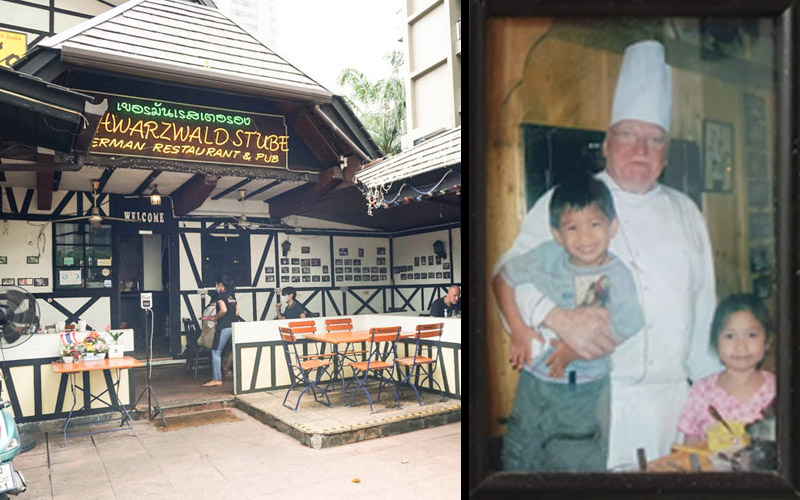Photos: Chayanit Itthipongmaetee
One hour before the grand opening of Boon Rawd Brewery’s Singha Beer House near Asoke intersection, its German chef faced yet another crisis. Twenty, actually.
That’s how many young Thai women in full costume Otto Duffner had to teach how to dance something resembling a Bavarian folk Schuhplattler. It was 1981, and Duffner didn’t just make things work for the Thai brewing dynasty’s bierhaus – lines to get in soon stretched over 2 kilometers – but as an unofficial emcee of Bangkok’s German-speaking community for the next three decades.

Fast forward 37 years to Thursday, and that community’s social center, the German restaurant Bei Otto (“Otto’s”), said goodbye to its little slice of Bavarian fantasy just off Sukhumvit Road.
Speaking from his hometown in Villingen-Schwenningen, Otto, now 73, recalled with pride building the restaurant from nothing through “hard work, good food, good service and hospitality.”
“I wanted to get out of the Black Forest and out into the world,” he said of migrating to Thailand in 1981, a year after first visiting Pattaya (“I enjoyed the girls, of course.”) – with a buddy.
He’d heard the descendent of Thailand’s first brewers, Boonrawd Bhirombhakdi and his Germanophile clan, wanted to open a beer house downtown. He applied for the chef’s job but considered it a longshot, especially given his scheisse English.
“I was very shocked, [but] I said, ‘Yes, I will!’” he recalled.

Three years later, a German baker’s death in 1984 meant a good deal on a bakery not far from Asoke for Otto to realize his own restaurant dream.
“In the beginning, it was a hard time. It was very small – not the Singha Beer House,” he said. “After one year my new place was full, and I had to send customers to my neighbor.”
After building it into a success, he relocated a few blocks away to Soi 20 in 1990, remaking several homes into a Bavarian beer house facsimile complete with outdoor biergarten.
After 23 years there of rowdy Oktoberfest parties, cultural events, wine festivals and kameradschaft, he sold the place and moved back to Germany.

By Thursday, it was a shadow of its former self. The magic gone from its now-silent stammtisch room, where large groups hoisted steins together. The dark wood decor had been removed from walls which had been stripped of hundreds of fading photos, many anchored by a grinning Otto under a giant floppy chef’s hat as he played host or hoisted small children from. Unshown, the untold hours he spent behind the scenes making bratwurst in the butchery and bread in the bakery.
But a few fans from German and Thai to Japanese were present.
In one seat was Otto’s kid brother – 70-year-old Klaus Duffner – bidding farewell to the restaurant and its many memories – his brother’s parties, the woman he fell in love with – with a last meal.
“Now it’s all finished,” Klaus Duffner said. “It’s terrible. It was a little bit of home for me.”
In the restaurant’s heyday, Klaus Duffner said Bangkok’s Deutsche-speaking population of Germans, Swiss, Austrians and the like was much larger, as the low cost of doing business drew major manufacturers such as Siemens and Mercedes, bringing large numbers of workers.



In full disclosure, though this reporter was never a regular, I’d heard of Otto Duffner’s legendary hospitality and generosity from those who knew him, including his Thai family members.
And though I’ve never met Otto, there was no mistaking in all the photos the big pink face and jolly-sized belly that made him the obvious choice for the role of Santa Claus at Christmas.
He sold the restaurant to a British pair in 2013 but kept close tabs on it through his network of regulars, including Klaus. He considered buying it back when things didn’t work out as expected for them, but it was sold to a German businessman with hotels in the Maldives, he said, who did not maintain the premises.
It had fallen on hard time, made worse by the pandemic. A staffer said Thursday that the monthly rent had gone up to a heart-stopping THB450,000 (US$13,500). Understandable given the now-prime location, but the landowner was also said to be putting the squeeze on tenants so the soi’s chaotic mishmash of structures could be replaced with another condominium.
Much the same fate of many storied Bangkok institutions bulldozed to make way for the dark grey condo-colored condos which siphon streets of life. A citywide trend lamented by many Bangkok fans as bleaching its color, but many more welcome, happy to see its versicolor discord floored over in tasteful laminate.
While the German owner has died, Bei Otto is still owned by his Thai partner. It will reopen next week on Phetchaburi Road with the same menu and products. Asked what would become of the hundreds of photos which lined the walls, each of which is a time machine to Bangkok’s past, Thidarat “Nam” Singmaroeng, a 10-year Bei Otto veteran, said they would continue to festoon the walls at the new location.



FIND IT:
Bei Otto’s new location opening Sept. 29
1938 Phetchaburi Road


